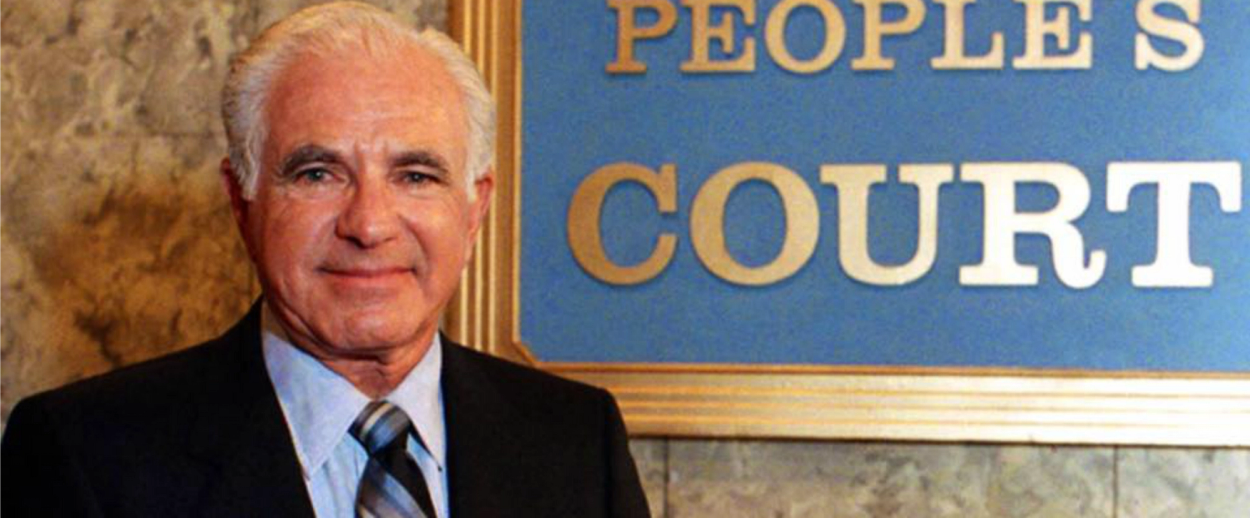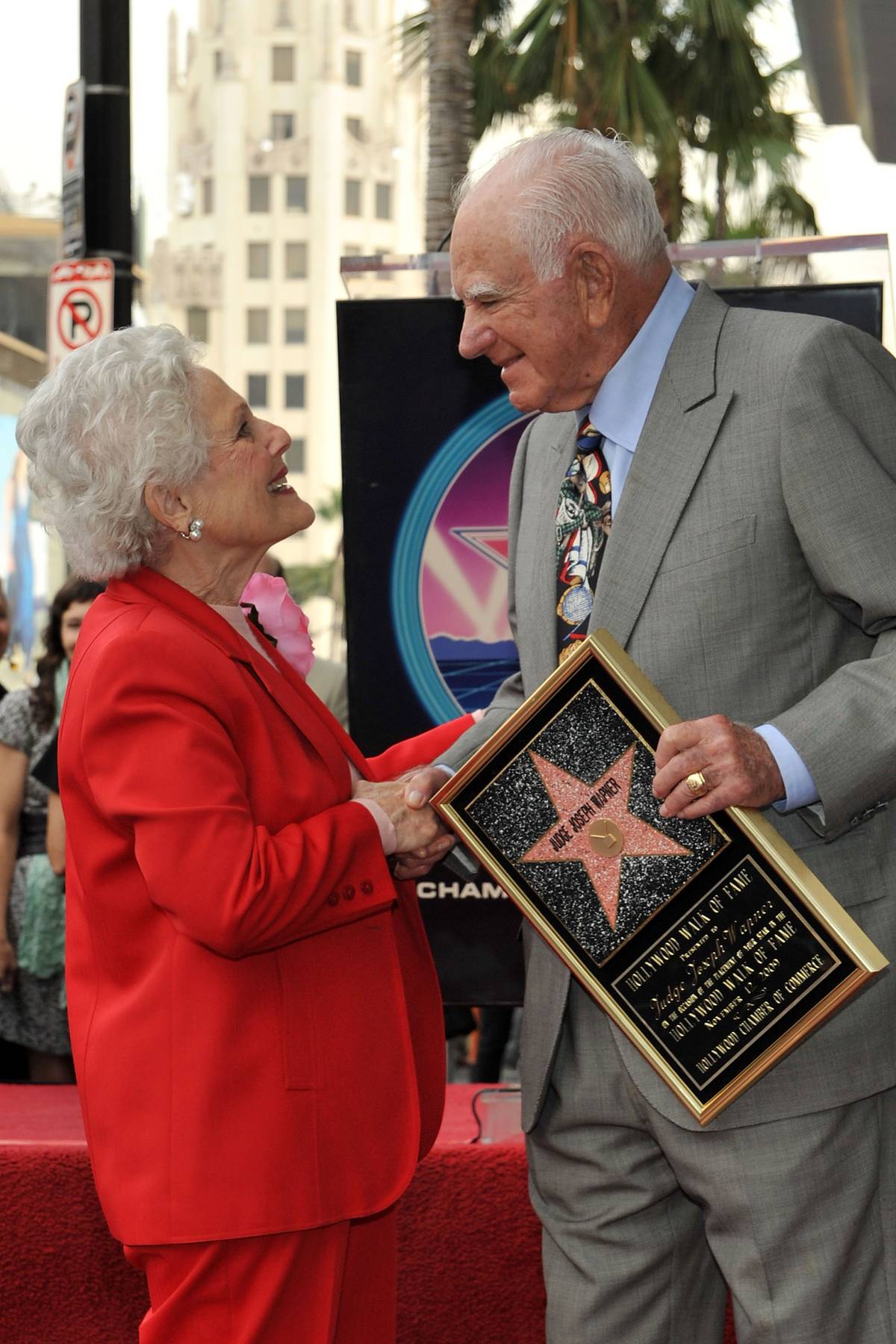The People’s Justice
The son of European Jewish immigrants, Joseph A. Wapner became a television star presiding over ‘The People’s Court.’ He died over the weekend at 97.




The forces of truth and justice seem to have taken blow after blow of late, and this weekend brought about another sockdolager, albeit of the more elegiac kind: The esteemed judge Joseph A. Wapner, famous as the voice of the law on the syndicated television show The People’s Court, gave his final ruling. He died last Sunday at his home in Los Angeles. He was 97.

The son of Jewish immigrants from Romania and Russia, Wapner was a decorated World War II veteran who, according to The New York Times, briefly dated a pre-fame Lana Turner while they were both students at Hollywood High School. He was also the first Jew to be elected the presiding judge of Los Angeles’s Superior Court system, supervising more than 200 colleagues, just two years after being appointed to the bench in 1959.
Despite these distinctions, it was as the presiding judge on the legally-binding (although not criminal) The People’s Court that Wapner truly made his mark on the legal profession and its observers, serious and casual alike. For a generation of Americans who watched his show nearly every afternoon—including myself and Dustin Hoffman’s character in Rain Man, who would have a self-harming meltdown when kept away from his favorite means of watching justice in action—Judge Wapner was a firm, reassuring paragon of fairness and efficacy in the application of the law. He listened to reason. He was firm, but compassionate and logical, and eventually so trusted by the public that he was more known than any contemporaneous Supreme Court Justice, and was even requested to arbitrate the disbursement of oil refinery settlement among 141 families in Fullerton, California.
He also seemed like one of the endless supply of professional Jewish uncles that seemed to materialize out nowhere at family weddings and bar mitzvahs, always dignified and well-educated but friendly and approachable, the kind of men who radiated a successful sense of purpose in the world. They were, I sensed, winners of a sort in the lottery of the American Dream, when it was still possible for the kid of working-class immigrants to graduate from an excellent public school and then make something of himself. Judge Wapner gave you the sense that things were working as it should, that consensus and justice were tangible concepts, and most of all, that everything was going to be all right. Judge Wapner was one of the last of his kind, and although it’s been a long time since he was on the bench, his presence, and that of those like him, remains sorely missed.
Rachel Shukert is the author of the memoirs Have You No Shame? and Everything Is Going To Be Great,and the novel Starstruck. She is the creator of the Netflix show The Baby-Sitters Club, and a writer on such series as GLOW and Supergirl. Her Twitter feed is @rachelshukert.